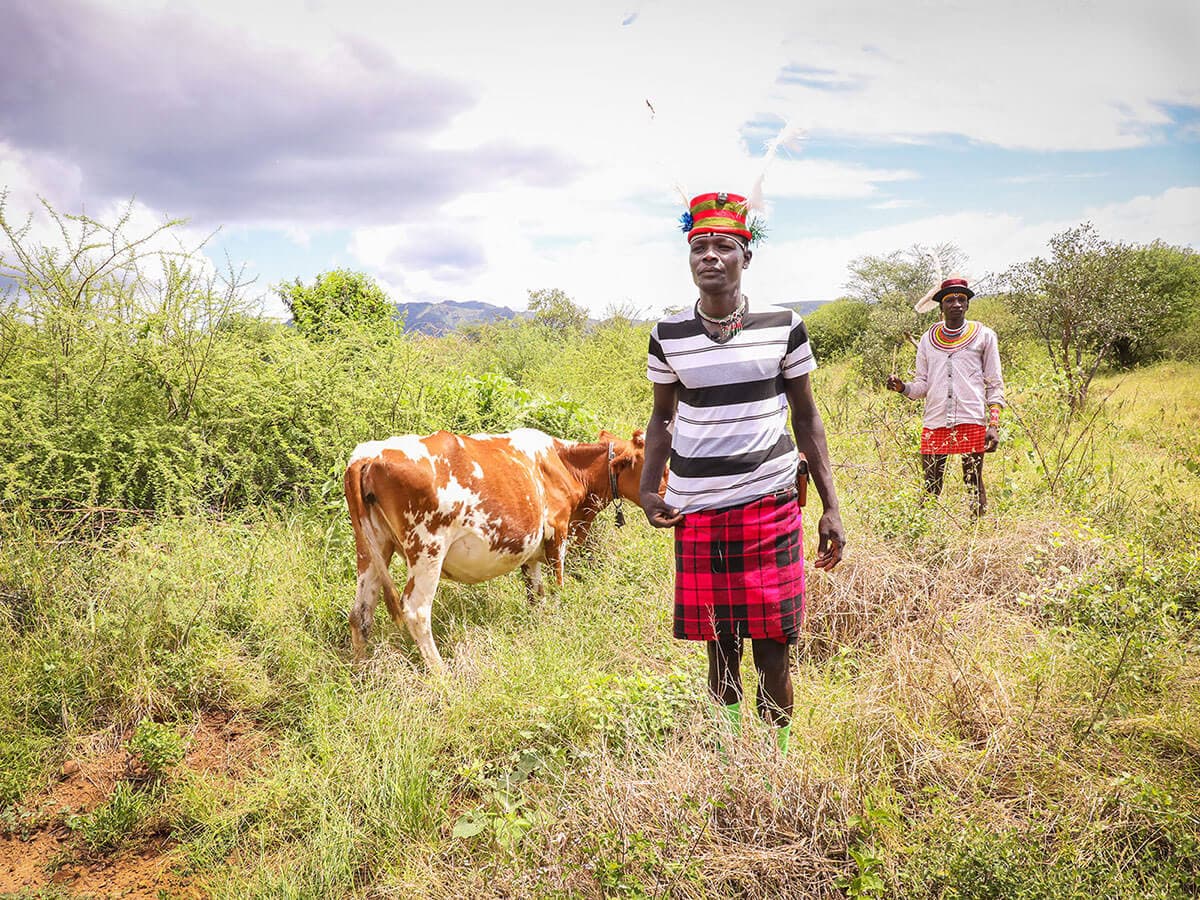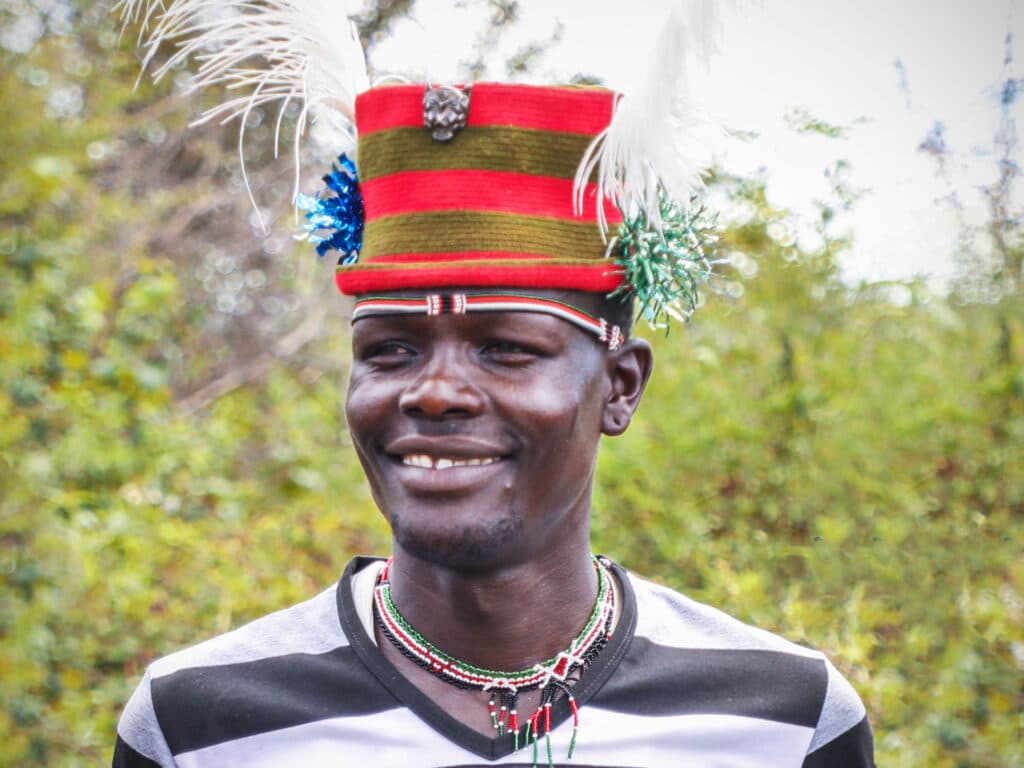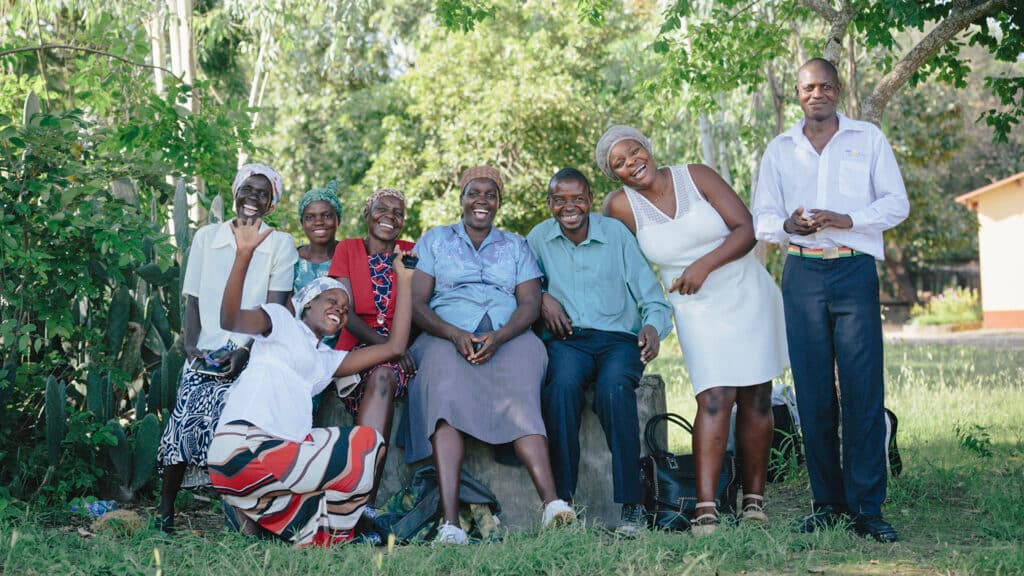
Farming against cattle rustling
Cattle rustling is a common practice amongst pastoralists in Kenya that involves the forceful acquisition of cattle from one community by another using guns and other weapons and may lead to loss of lives and destruction of property. Now young warriors have been encouraged to embrace farming as an alternative to cattle rustling.
East Pokot is a district in Baringo county that experiences severe climatic conditions. Livestock and crops are often wiped, leaving the community to depend on humanitarian assistance for food. In 2017, Diakonia, together with its Kenyan partners, ADS and CIM initiated a program to improve resilience to the effects of climate change for vulnerable communities in the area.
The five-year project involved enhancing the capacity of communities to cope with the effects of climate change, promoting the uptake of sustainable livelihood options and advocating for the development, mainstreaming and implementation of sustainable climate change resilience policies, strategies, and plans. To combat hunger, food was distributed to the most vulnerable populations in the area and community meetings were held with the young warriors encouraging them to embrace farming as an alternative to cattle rustling.
Cattle raiding has been widely accepted
Cattle raiding, cattle theft, and now cattle rustling is a common practice amongst pastoralists in the arid and semi-arid land regions in Kenya that involves the forceful acquisition of cattle from one community by another using guns and other weapons and may lead to loss of lives and destruction of property.
Baringo County, home to more than 500 000 people, is not an exception for this dangerous activity that has seen thousands of lives lost and caused many to flee their homes. Traditionally, cattle raiding was accepted and controlled by cultural elders, to restock livestock, but due to commercialization of the activity, and the availability of weaponry, it has turned out to be a dreaded and deadly activity. Poverty, political instigation, idleness, unfavorable climatic conditions such as persisting droughts, are some of the factors that influence cattle rustling.
Farming has transformed men's lives
“I am glad I am part of this team,” narrates, Namwoma. “I used to spend my life in the bush, day and night. Cattle raiding was my life until one day I lost my friends during a raid and decided not to return.”
With the support of Diakonia, Namwoma received training on farming from CIM during a visit to Yatta where they saw farmers successfully grow vegetables in a dry area, and it has since then changed his way of life.

“You do not have to be told, you can see how my life has transformed,” Namwona says happily,
“I started with few seedlings but now I have close to 100 mangoes trees, I have grown vegetables, and I have harvested water for irrigation. Every harvest if way more than the previous one. I cannot compare what I used to earn from cattle rustling to what I get in farming. Today, I am so happy because with your help and with that of the Ministry of Agriculture, a big water point has been dug for me.”
Men grow up to become warriors
Residents of Baringo County are pastoralists. They entirely depend on their livestock as a source of livelihood. Many young people in this region do not get the opportunity to further their studies after completing their primary school education, if at all they manage. The level of literacy is very low hence young men grow up to become warriors. They spend their lives in the bush defending and protecting their community’s wealth. This includes raiding neighboring communities to steal cattle to restock when diseases and droughts wipe their livestock. Many have died during these raids.
Diakonia, working together with partners aims at enabling the community to view themselves as able agents of change; map out their local resources, utilize these resources and mobilize themselves towards the change they desire and transform their community.
“I am grateful for the good work Diakonia and its partners are doing in this area. It is about time we transformed the lives of these people. I am very happy to see these young men farming instead of spending their time stealing cows from our neighbors, this will transform our society, reduce insecurity and we will have an abundance of food to feed the entire region,” Says Micah Powon, Kenya’s Principal Secretary, State Department for Arid and Semi- Arid Lands.

Diakonia's work in Africa
Diakonia works in several African countries, where we have country offices in most of them. The work is coordinated from our regional office in Nairobi, Kenya.